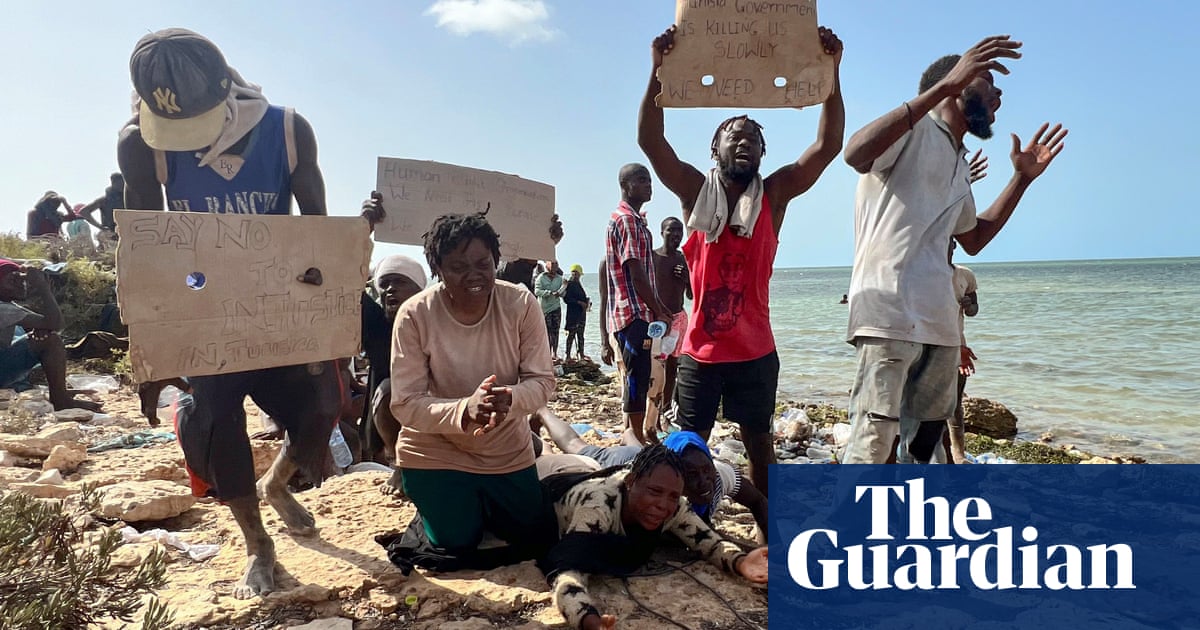Moussa could almost taste freedom. Ahead, searchlights shimmering in the water: the Italian coastguard which would ferry him to Europe. But behind, closing in quickly, Tunisia’s national maritime guard. Moussa’s dream was soon shattered.
The 28-year-old from Conakry, Guinea, was on board one of four boats intercepted off Sfax during the night of 6 February 2024. The occupants – about 150 men, women and children – were brought ashore to Sfax, handcuffed and herded on to buses.
At about 2am they arrived at a national guard base near the Algerian border. Shortly after, says Moussa, Tunisia’s security forces began methodically raping the women.
“There was a small house outside and every hour or so they’d take two or three women from the base and rape them there. They took a lot of women.
“We could hear them screaming, crying for help. They didn’t care there were 100 witnesses.”
During a meeting in Rome with his rightwing counterpart, Giorgia Meloni, Starmer admired how the pact had prompted a “dramatic” reduction in numbers reaching Italy.
By contrast, the number of refugees and migrants near El Amra continues to grow. One migration observer in Sfax estimates there may be at least 100,000, a number that some feel Tunisia’s increasingly autocratic president, Kais Saied, is deliberately cultivating as a threat to Europe: keep the money coming, or else.
“If Europe stops sending money, he’ll send Europe the migrants. Simple,” says the expert, requesting anonymity.
It is a predicament that provokes questions around Europe’s willingness to ditch commitments to human rights to stymie migration from the global south. And how much abuse of migrants such as Marie is Brussels prepared to overlook before re-examining payments to Saied?


